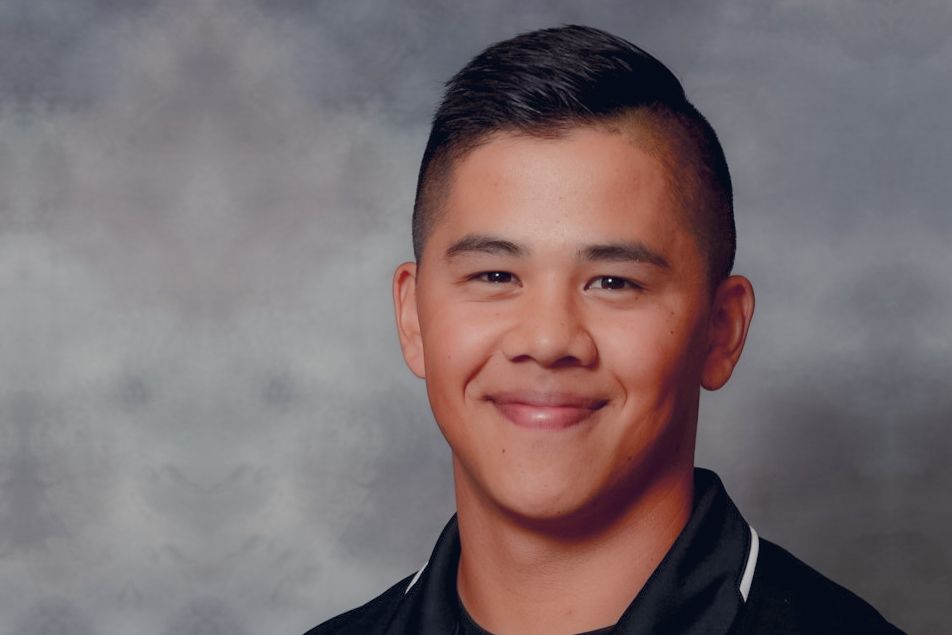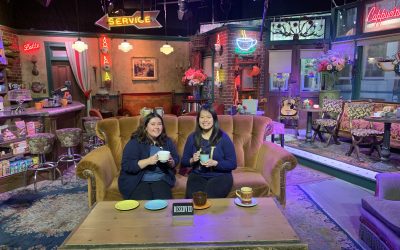Q&A with Andrew Maeda, a strength and conditioning coach at Illinois State University
Andrew Maeda graduated from Western Oregon University in 2016 with a B.S. in Exercise Science and a minor in Sports Leadership. Just a few weeks ago, Andrew completed his master’s degree in biomechanics at Illinois State University. He is now working as a strength and conditioning coach.

Why did you choose WOU?
I graduated high school from a small town in eastern Oregon having played a lot of sports and done a lot of training. I knew I wanted to be involved in the health/fitness profession and I also had a general interest in exercising and the human body.
Western Oregon University was great for me because it was affordable, had a program I was very interested in, and allowed me to be (somewhat) far from home. The exercise science program was complemented by a new Health & Wellness Center and courses that all seemed interesting to me.
My high school grades were not very good, but I found that once I started learning about what I was interested in, I no longer had to worry about my grades. Graduating with my master’s degree in Biomechanics with a 3.91 GPA would not have been possible if WOU had not taken a chance on me.
Can you explain your current position?
Currently, I am an Assistant Strength and Conditioning Coach at Illinois State University. My responsibilities include being the primary assistant for the football team and overseeing the women’s basketball program. I work with coaches, athletic trainers, and administrators – anyone who is involved in the success of the program. I also regularly meet with athletes to discuss their experience in our program.
Just a few weeks ago, I finished my position as a Graduate Assistant Strength and Conditioning Coach. As a GA, I served as the primary assistant for football, as well as directly oversaw the women’s golf and gymnastics teams and the men’s tennis, pole vault, and triple jump teams. This was accompanied by my graduate school program in the department of kinesiology and recreation with an emphasis in biomechanics.
What does a typical day at work look like?
A typical day at work begins at 5:30 a.m. with myself and other associates preparing the weight room and/or conditioning surface for several teams that will occupy the facility between 5:30 and 10 in the morning. This includes setting up the equipment and drills that will be used during the training session. I spend the majority of my day assisting with the football team, typically until around 3:00 in the afternoon. After this, I will usually eat a brief lunch and work out until my evening teams arrive between 5 and 7 p.m.
Each day incorporates a different training approach that has been specifically selected and planned to ensure optimal training is taking place. Over the course of the day, I am focused on constantly motivating, encouraging, and pushing my athletes to become better in multiple facets of their lives.
What do you enjoy most about your job?
I most enjoy being able to develop relationships with the athletes. These relationships help me develop them into better athletes and better people. Ultimately, the sports careers of the athletes I work with will end someday, so being a hard-working, dedicated, respectful, and responsible human being is important.
I believe sports can teach you a lot about yourself and that the training for sports can help reveal things about yourself that you did not know were there.
When I work with the athletes, I get to experience them in this vulnerable state and help them learn and grow. The influence that I have had upon only a few teams over the last two years has shown me how impactful my actions, words, and personality can be upon a young college student athlete who may not have had that type of influence or understanding growing up. Overall, it has been an extremely rewarding career.
What experiences helped prepare you for your professional life?
One reason that I chose to do this spotlight is because of the huge amount of thanks and gratitude that I owe to several people at WOU. Without them I would not have gained the relevant experience I needed to be successful in my career.
First, I believe that the athletic department made a great decision to hire Cori Metzgar as the Director of Sports Performance, as well as Becky Smith as the Assistant Director of Sports Performance.
Cori, who is considered a master strength and conditioning coach, gave me my start as an intern and allowed me to stay on for several years and develop myself as a coach. She gave me the relevant experience I needed to be successful in this field. Cori was also a vital connection for my graduate assistantship here at Illinois State University. Becky Smith helped me develop my coaching abilities and gave me numerous opportunities to learn, teach, and coach.
The HEXS professors, including Dr. Armstrong, Dr. Caster, Dr. Hautala, Dr. Timken, and Tom Kelly, all helped prepare me for grad school and my career. Each one of these professors guided me, educated me, and helped me realize my potential.
Dr. Armstrong was my advisor as well as a professor who regularly talked with me regarding the field of strength and conditioning.
Dr. Caster gave me the introduction to biomechanics that sparked my interest in a master’s degree.
Dr. Hautala gave me several great perspectives about the psychology involved in sports that I still consider when training athletes today.
Dr. Timken was the professor who recommended me to Cori Metzgar and she also developed my initial interest in strength and conditioning coaching with her classes.
Finally, Tom Kelly gave me multiple approaches to coaching that I believe have been a necessary component of my training. Without all of the people listed above, I would not be where I am at today.
What advice do you have for students?
My advice for students is to realize the importance of education, experience, and personal growth while in college. Additionally, students should remember that the faculty and staff at WOU and HEXS are all there to help you achieve whatever it is you want to do in life. Just because it is not a large major university or program does not mean that you cannot be successful. The fact that I – a graduate of the exercise science program at WOU – was hired as a full-time strength coach shows that it is possible to be successful.
Lastly, my advice would be to appreciate the value of the relationships you develop with faculty and staff. I look forward to traveling home and being able to stop by the weight room or the offices of the HEXS professors to catch up. No matter where you go or what you do, remember that you are a Western Oregon University Wolf for life and that this is a small but very close and very strong population of people to be associated with.


